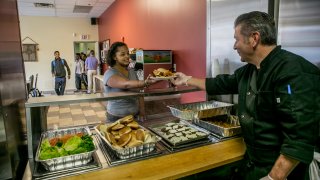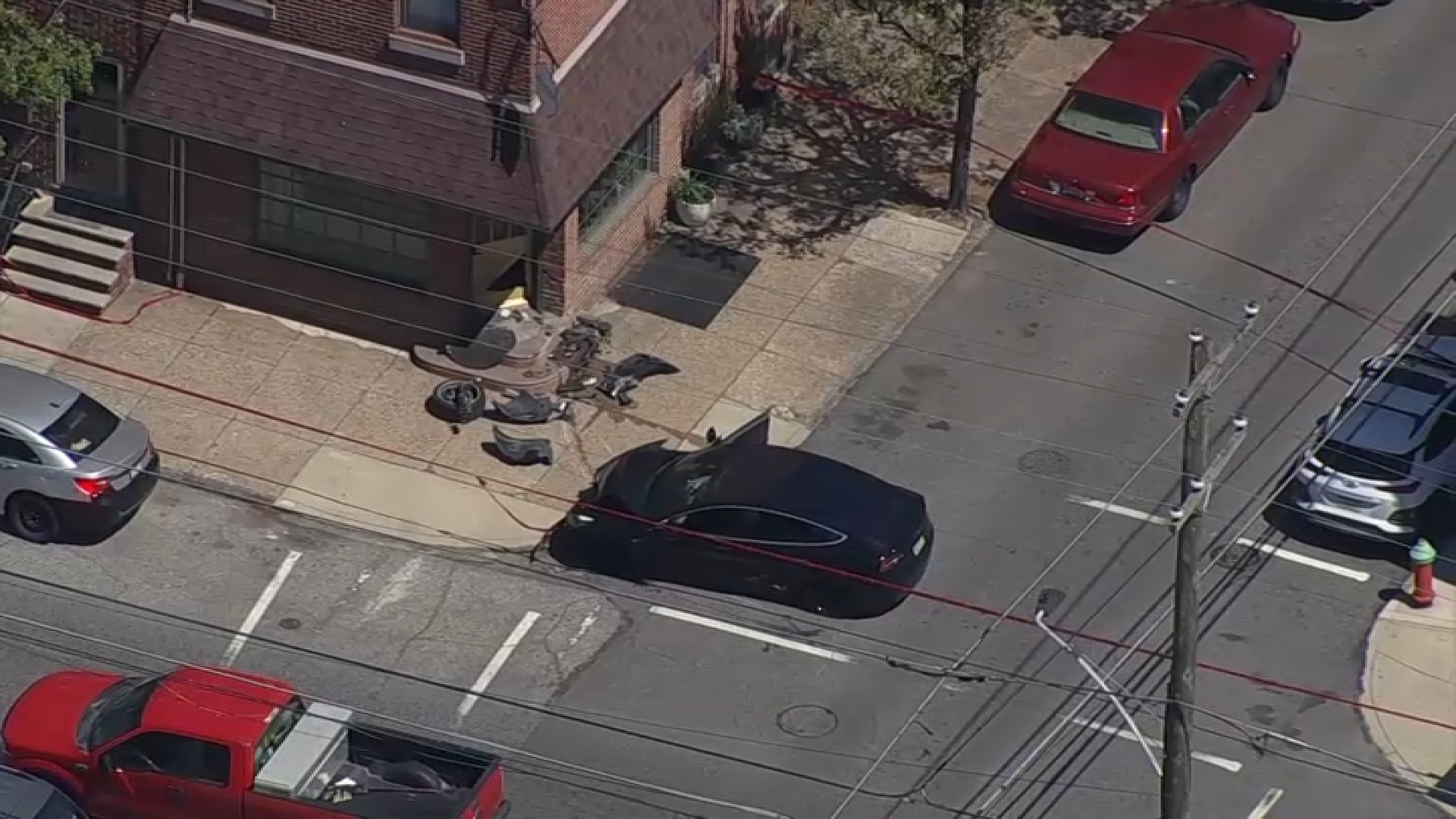
A food offering at Covenant House Pennsylvania.
The clampdown on public life has awakened in many people the realization of just how vulnerable even economically stable households can be during a prolonged crisis.
But what about the people who were struggling before the coronavirus outbreak?
Organizations such as Project HOME and Covenant House Pennsylvania, which provide thousands of Philadelphians with temporary housing, food and health care, have been forced to adjust their outreach efforts.
“This crisis requires us to be more agile than we’ve ever been before," Covenant House Pennsylvania executive director Jen Weikert said Thursday. "We need to monitor information from a variety of sources and then make decisions and move our teams to implement our policies."
The Covenant House runs a shelter for young people between 18 and 22 years old, as well as meals and other services. Weikert told NBC10 about a young woman in the organization who recently began working for the School District of Philadelphia, but was forced to stop when the schools closed.
“She can’t leave our shelter because she can’t earn an income, Weikert said. "Our youth were already dealing with trauma and an economy that doesn’t work for them."
Then there’s the communication problem. According to the Pew Research Center, more than 81 percent of Americans own smartphones. However, phone ownership is less likely among people who are homeless.
Local
Breaking news and the stories that matter to your neighborhood.
Weikert said that’s another reason staff members are walking a fine line between increasing their verbal communication with a vulnerable population at a time when it’s desperately needed, while maintaining social distancing.
Meanwhile, Project HOME, which helps hundreds of homeless people in Philadelphia obtain housing and medical services, has a different problem. It must continue providing services to people already facing numerous difficulties while keeping its staff safe. The organization claims to have 5,000 patients on its medical roster.
“It’s been upending everyday life. For us, we’ve basically had to transition so many people to remote working or limited onsite working, even through our work has to be done face-to-face,” said Monica McCurdy, vice president of healthcare services at Project HOME.
The organization also hasn’t been immune to shutdowns. To help flatten the curve, it has closed down its after-school, adult learning and employment services programs.
“We have a skeleton staff," McCurdy said. "They’re there to prep meals and make sure the facilities are clean and the buildings are maintained. We are leaning on what our values are in our organization and it’s been helping us get through."



